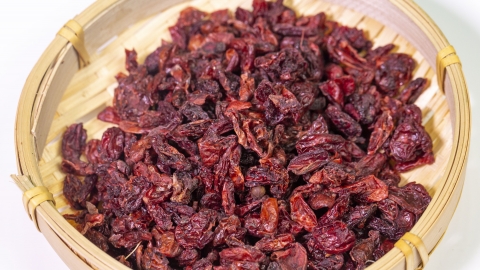Can I eat Cornus officinalis if I have a thick white tongue coating?
If a thick white tongue coating is caused by deficiency-cold of the spleen and stomach or insufficient kidney yang, Cornus officinalis (Shanzhuyu) may usually be taken. However, if the thick white tongue coating is caused by internal cold-dampness, Cornus officinalis generally should not be used. It is recommended to seek timely medical advice, identify the exact cause, and undergo symptomatic treatment under the guidance of a qualified physician.

A thick white tongue coating may sometimes be due to deficiency-cold of the spleen and stomach or insufficient kidney yang. According to traditional Chinese medicine (TCM), Cornus officinalis is warm in nature and sour in taste, entering the liver and kidney meridians. It has functions of nourishing the liver and kidney and astringing to prevent excessive fluid loss. If a thick white tongue coating is caused by kidney yang deficiency or deficiency-cold of the spleen and stomach, moderate consumption of Cornus officinalis can provide some warming and nourishing effects, helping to improve the body's constitution.
In most cases, a thick white tongue coating is often associated with excessive internal cold-dampness and weakened function of the spleen and stomach in transformation and transportation. In such cases, taking Cornus officinalis is not recommended. Cornus officinalis tends to be warm and hot in nature, which may exacerbate dampness retention and be detrimental to recovery. It should especially be avoided by individuals with symptoms such as internal damp-heat or lingering dribbling urination.
When using Cornus officinalis or other traditional Chinese herbal medicines, it is recommended to do so under the guidance of a qualified physician to ensure both safety and effectiveness of the treatment.




